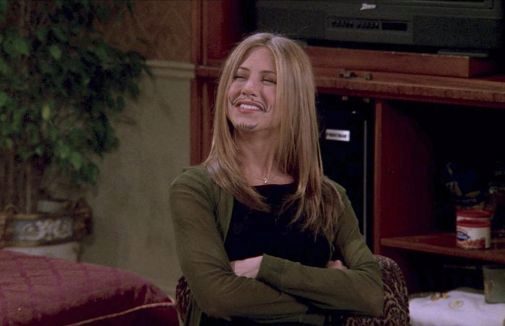There was a time when if you missed a chapter in a series, you had two options: a) wait for the next one as if nothing had happened (in fact, that's what had happened: nothing), or b) beg a friend of confidence and with some pleasure for the enthusiastic story that will detail the lost. The spoiler was not so much the curse that is now as a fairly common, orderly and even healthy form of socialization.
In the case of Friends (sorry, now it's my turn), neither of the previous two alternatives worked. On the one hand, it bothered to attend the conversation in which two who had been in front of the Canal + at eight in the afternoon exchanged their incompetence to reproduce Phoebe's tone outputs and, on the other, the comfort that the next day everything would return to his being with one more episode with Monica and Rachel seemed a bad excuse for sad unrepentant. Conclusion: you had to be.
It is still curious that TV, which for so long was accused of recklessness, has ended up being an inexhaustible source of melancholy. What Juan Cueto called "the mid-cult bakery responsible for the mental cholesterol accumulated by the Frankfurter sausage" was not right. That only means one thing: those who had the afternoon free from Tuesday to Friday in the late 90s now send. Or they try. That said, it is hard to find the reason why a series like Friends liked it so much then. Much of the legion of followers still raged in pure nihilism grunge and was convinced that Cobain's death could not go unpunished. Why were the intranscendent adventures of a group of poshs in a lying New York so interesting (the series was filmed in Los Angeles) that they neither took drugs nor cursed the world or even fucked? Rare. But the fact is that no one has ever been able to overcome Joey speaking in French (please gossip YouTube).
The series had the privilege of utopia at a time when comedy could only be comedy
What already costs less work is to find out why, from a distance, like it so much and remember it so much now. Beyond the cumbersome process of nostalgia, always greasy, the creation of Crane and Kauffman had the privilege of utopia at a time when comedy could only be comedy.
There was no need behind her to beat the need for a second claim, social or political only. There was neither subtext for cynics nor empowerment for complexes nor bread for ducks . The protagonists were white, handsome (almost all), privileged and made jokes about their status as supercharged bourgeois: a real plague at the end of the millennium. But, in their cheerful exploitative unconsciousness, they proposed the possibility of a laugh that was, and still is, pure anesthesia. And, now more than ever, who resists 22 minutes blank?
According to the criteria of The Trust Project
Know more- media
TelevisionFriends: the series that the years do not pass
GrandstandThe silk routes
The Fierce Wolf 'Love Story'

